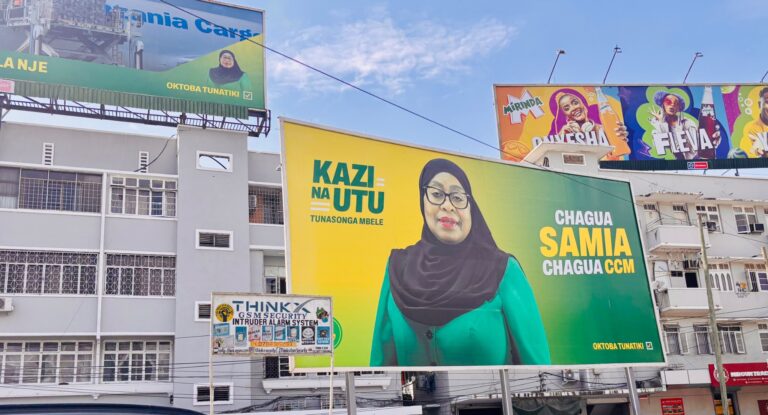Tanzania heads toward general elections in 2025 with the ruling Chama Cha Mapinduzi (CCM) strongly favored but facing a more competitive environment than in 2020. President Samia Suluhu Hassan has reopened political space compared with the Magufuli era (e.g., lifting the ban on opposition rallies), yet core structural advantages for CCM remain: incumbency, state media reach, patronage networks, and electoral bodies appointed by the executive. The opposition—principally CHADEMA on the mainland and ACT-Wazalendo in Zanzibar—seeks to convert urban youth discontent and cost-of-living pressures into votes, but fragmentation, resource gaps, and uneven referee institutions are headwinds. Key risks include information controls, administrative bias, episodic violence in Zanzibar, judicial uncertainty, and cross-border security spillover from northern Mozambique. External influence is visible through Gulf, Chinese, and Western engagements tied to ports, energy, and governance programs, each with election-season implications.
Political Landscape & Key Actors
- CCM (Chama Cha Mapinduzi): Africa’s longest-ruling party, deeply embedded down to ward level. Strengths: organizational depth, rural dominance, state resources, union narrative (Mainland–Zanzibar).
- President Samia Suluhu Hassan (CCM): Incumbent since 2021. Brand: pragmatic, investor-friendly, conciliatory tone toward opposition, emphasis on macro stability, ports/logistics, and energy. Weakness: base mobilization less “commanding” than Magufuli’s; must balance reformists vs. CCM traditionalists. Control of state machinery: CCM has strong influence over the Zanzibar Electoral Commission (ZEC), policing, and media. This can be leveraged to tilt the playing field.
- Fragmentation of the opposition: Unless ACT-Wazalendo consolidates other smaller parties, the vote split may weaken the opposition front.
- Patronage networks: Access to jobs, state contracts, and development projects enables CCM to maintain loyalty among local elites and communities.
- Zanzibar (CCM): President Hussein Mwinyi. Isles politics are more polarized; turnout and security management on Pemba/Urban West are pivotal.
- The playing field remains heavily tilted in favor of CCM due to its control of institutions and historical dominance. However, ACT-Wazalendo retains a strong base and symbolic power, making the contest politically sensitive and prone to post-election disputes. The real issue is not just who gets declared the winner, but whether the process is credible and whether Zanzibar avoids another cycle of violence and contested legitimacy.
Opposition
- CHADEMA: De facto main challenger on the mainland. Leadership figures: Freeman Mbowe; rising urban youth surrogates. Strengths: urban, educated vote; anti-corruption message; social media fluency. Constraints: financing, media access, past legal pressure.
- ACT-Wazalendo: Strong in Zanzibar; pushes governance and autonomy issues. Its performance on the Isles can be decisive for national narrative.
- A significant proportion of Zanzibaris (especially in Pemba) consistently vote against CCM, seeing it as a mainland-imposed authority. This creates a guaranteed opposition bloc.
- Youth dissatisfaction: High unemployment, corruption, and lack of genuine power-sharing fuel younger generations’ frustration, which ACT-Wazalendo seeks to channel.
- International pressure: Repeated electoral crises and violence in Zanzibar have attracted scrutiny. Opposition actors may benefit from stronger regional or donor pressure on CCM to ensure a fairer process.
- CUF and smaller parties: Residual bases, potential spoilers or coalition partners.
Referees & Institutions
- National Electoral Commission (NEC) & Zanzibar Electoral Commission (ZEC): Perceived proximity to the executive. Any incremental reforms (voter register transparency, results management, candidate clearance) will be closely watched.
- Judiciary & security services: Historically conservative; case outcomes during nomination disputes and rally permissions will shape the playing field.
- Media & regulators (including online content rules): Gatekeepers for agenda-setting; enforcement tends to tighten as elections near.
Voting Geography & Demographics (High-level)
- Mainland rural regions: CCM advantage via social programs, patronage, and organization.
- Urban centers (Dar es Salaam, Arusha, Mwanza, Mbeya, Dodoma): More competitive; cost-of-living and service delivery are salient.
- Youth bulge (under 35): Largest swing cohort; jobs, prices, and credibility matter more than ideology.
- Zanzibar: Historically contentious. Pemba often opposition-leaning; security and results-tabulation processes are recurring flashpoints.
Policy Cleavages Likely to Drive the Campaign
- Economy & Cost of Living: Inflation sensitivity, food and fuel prices, youth employment, MSME finance.
- Investment & Infrastructure: Port concessions, logistics corridors, energy (gas/LNG; power reliability), mining local-content debates.
- Governance & Political Reforms: Election administration, media/online freedoms, constitutional and electoral-law changes.
- Union Questions: Mainland–Zanzibar balance, autonomy narratives, revenue-sharing.
- Security: Counter-extremism and Mozambique spillover; refugee pressures from the Great Lakes.
Prospects & Scenarios
Baseline (Most Likely): Managed Competitiveness, CCM Retains Presidency
- Drivers: Incumbency advantages, rural dominance, divided opposition, incremental but not structural reforms.
- Variance: Closer margins in urban constituencies; improved opposition performance in Zanzibar’s Pemba/Urban West possible if intimidation remains low.
Upside for Opposition (Less Likely but Plausible)
- Triggers: Unified opposition slates; credible parallel vote tabulation (PVT); viral economic narrative; visible reform concessions (e.g., observer access, transparent results forms).
- Ceiling: Significant seat gains and leverage over reform agenda; outright presidential win remains a stretch without a wave.
Downside (Low Probability, High Impact): Contested Results/Isles Violence
- Triggers: Tight races plus opaque tabulation; heavy-handed policing; communications shutdowns; opposition arrests.
- Consequences: Post-poll protests, reputational costs, investor caution, donor scrutiny.
Key Risks:
- Institutional Asymmetry: NEC/ZEC autonomy, candidate clearance disputes, unequal access to media/state facilities.
- Zanzibar Flashpoints: Polling-day disruptions, results-announcement tensions, limited avenues for redress.
- Information Controls & Online Restrictions: Suspension of outlets or throttling impacts monitoring, PVT, and de-escalation.
- Security Spillover: Cabo Delgado (Mozambique) insurgency effects in Mtwara/Lindi; isolated extremist incidents exploited for emergency powers.
- Disinformation/Foreign IO: Narrative operations around ports deals, LNG, or union politics; bot-amplified rumors to depress turnout.
- Economic Shocks: Currency pressure or commodity spikes before polls undermining incumbency messaging.
Mitigants: robust domestic observation; early de-escalation channels in Zanzibar; economic relief signals; public commitments to transparent tally publication.
Foreign Influence Map (Election-Season Relevance)
- Gulf States (notably UAE): Port/logistics concessions (e.g., Dar es Salaam) and related FDI. Election angle: sovereignty and terms of deals may become talking points; protests could be framed as anti-foreign leverage.
- China: Longstanding infrastructure, telecoms, and construction footprint; potential financing lines. Angle: campaign claims about debt, transparency, or jobs.
- Western Partners (US/EU/UK): Democracy, human rights, media freedom programs; budget and health/education support; private investors in energy/mining. Angle: observation, sanctions rhetoric if abuses occur.
- Multilaterals (World Bank/IMF/AfDB): Program conditionalities and macro narrative; incumbents tout disbursements, opposition scrutinizes debt and distribution.
- Regional (EAC/SADC): Observer missions and peer signaling; any cross-border security event can reshape the last-mile campaign tone.
Watchlist: Early-Warning Indicators (EWI)
- Legal/Regulatory Moves: Last-minute amendments to parties/press/online rules; candidate disqualifications.
- Election Management: Public release of polling-station results forms; SMS/USSD or web portals for results; scope granted to domestic observers.
- Zanzibar Security Posture: Pre-positioning of forces, curfews, arrests of ACT cadres, ferry/airport screening intensity.
- Digital Signals: Coordinated inauthentic behavior targeting youth or union issues; throttling reports on election week.
- Opposition Coordination: Joint candidates in marginal constituencies; shared PVT; rapid-response legal cells.
- Macro Shocks: Fuel/food spikes; currency volatility; industrial actions.
- Implications for Business, Donors, and Diplomats
- Short-term: Expect campaign-season regulatory caution, occasional licensing pauses, and reputational sensitivity around strategic assets (ports, LNG, telecoms).
- Medium-term: If CCM wins with credible process, policy continuity in investment climate with gradual governance reforms. If results are contested, anticipate temporary FX pressure, slower approvals, and donor conditionality noise.
- Zanzibar projects: Heightened due-diligence; community engagement and conflict-sensitive operations planning.
- Signal Fair Umpiring: Invite broad observers, accredit domestic monitors, publish procedures and forms early.
- Proportionate Policing: Crowd-management training and clear ROE; public commitments against internet shutdowns.
- Post-election Reform Roadmap: Time-bound commitments on electoral body appointments, results management tech, and media law updates.
Zanzibar has a particularly complex and contentious electoral environment within Tanzania. Below are major problems and challenges specific to Zanzibar’s context in elections — with examples, dynamics, and strategic implications.
Key Problems/Challenges for Zanzibar in Electoral Context
- Electoral violence and repression
- Security forces, pro-government militias, and “special units” have historically used intimidation, beatings, tear gas, arrests, and even live fire to suppress opposition and dissent, especially around polling stations and vote counting
- These tactics create a fear climate that discourages voter participation, candidate mobilization, independent monitoring, and free campaign activity
- Importantly, in many cases there has been little to no accountability or justice for past abuses.
- Manipulation of electoral institutions & process control
- The Electoral Commission (ZEC) appointments and leadership choices are often contested. For example, appointing individuals with prior contested histories erodes confidence in neutrality.
- Interference in voter registration, restriction of candidate access to polling stations, a lack of transparency in tallying and results publication are recurring problems.
-
- Historical practice includes annulment or cancellation of results in key constituencies (e.g. “forced seizure of ballot boxes and cancellation in 16 key constituencies” in 2000) to reassert control over outcomes
- The power-sharing agreement (“Government of National Unity”) has been undermined when the opposition’s roles are nominal without meaningful authority.
- Opposition boycott, legitimacy crises, post-election stalemate
- Past elections often end in political stalemate, with opposition parties rejecting results, refusing to recognize governments, or boycotting reruns.
- This undermines the legitimacy of the elected government and perpetuates political instability and distrust in institutions
- Identity and historical cleavages
- Zanzibar’s politics are layered with identity dimensions — Arab, Shirazi, African, coastal vs rural, island divisions, religious and ethnic identities. These layers can be mobilized politically, adding tension beyond standard party competition
- The legacy of the 1964 revolution and decolonization still resonates, creating narratives of exclusion, marginalization, and historical grievances, which political actors may tap into
- Uneven economic development & regional disparities
- Unguja (the main island) tends to have more infrastructure, tourism, services, media presence, and connectivity compared to Pemba (less developed, more remote). This gives campaign advantages to those better funded or tied to central power
- Voter mobilization and access to campaign resources are harder in poorer, more remote areas, which can disadvantage opposition or grassroots actors.
- Media and information control / limitations on civic space
- Independent media in Zanzibar have faced restrictions, harassment, or suppression especially around elections.
- Limitations on opposition campaign visibility, restriction on rallies, and controlling public space amplify the incumbent’s advantage.
- Digital threats: possible internet shutdowns or throttling, misinformation, and control of telecommunications in critical periods. (While not Zanzibar-specific, these are part of the broader Tanzanian risk environment.)
- Weak rule of law & impunity
- Courts and judicial processes are often unable or unwilling to adjudicate electoral grievances impartially.
- Lack of enforcement of electoral laws and failure to punish past abuses erode deterrence and allow repeat of violations.
-
- Strategic Implications & Risks
- Any election in Zanzibar is high-stakes; the convergence of repression, institutional manipulation, and contestation makes post-election violence or protest likely if the outcome is perceived as unfair.
- The trust deficit between opposition and electoral institutions is deep; even small procedural changes (or perceived slightest tilts) can trigger crises.
- For observers or external actors, ensuring credible observation, early warning, and mechanisms for dispute resolution is essential.
- Campaigns focusing only on national issues may miss these local dynamics; understanding Zanzibar’s structural disadvantages and historical grievances is critical.




